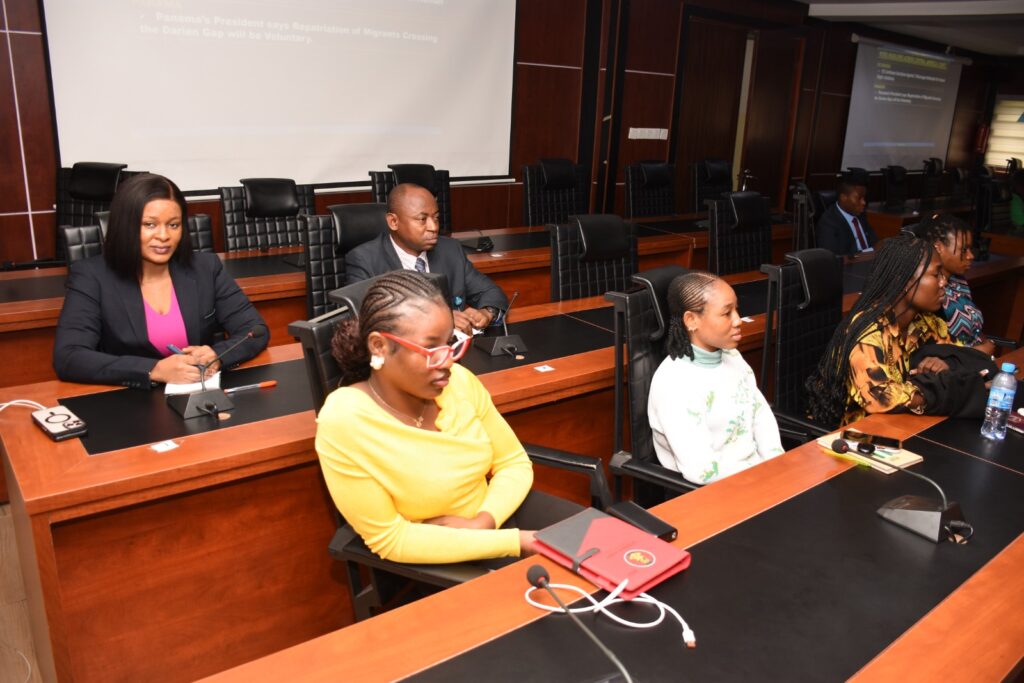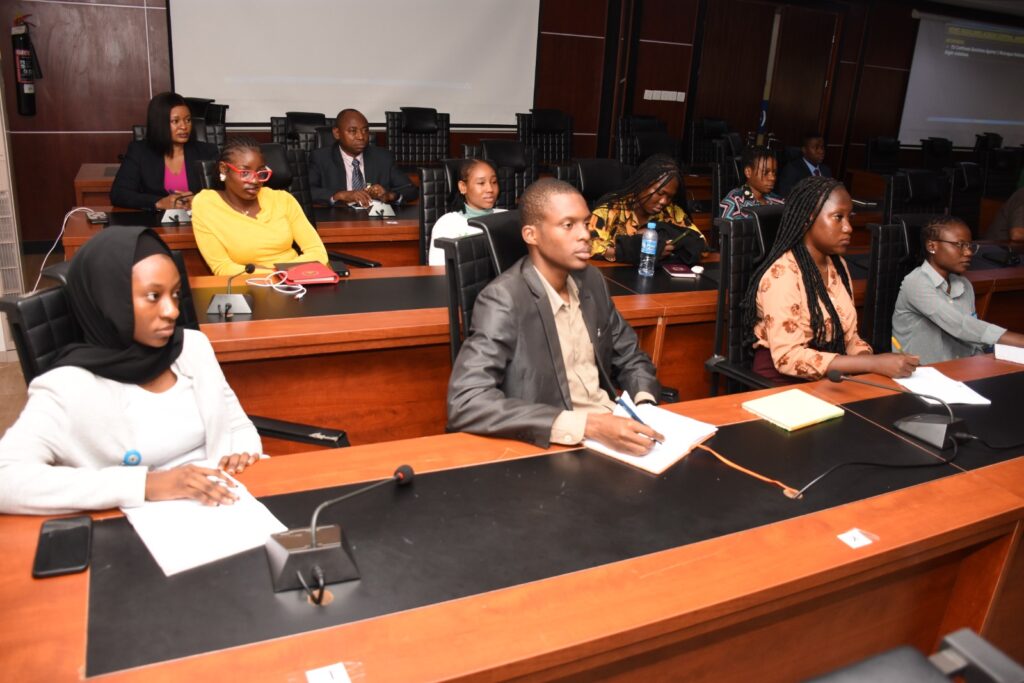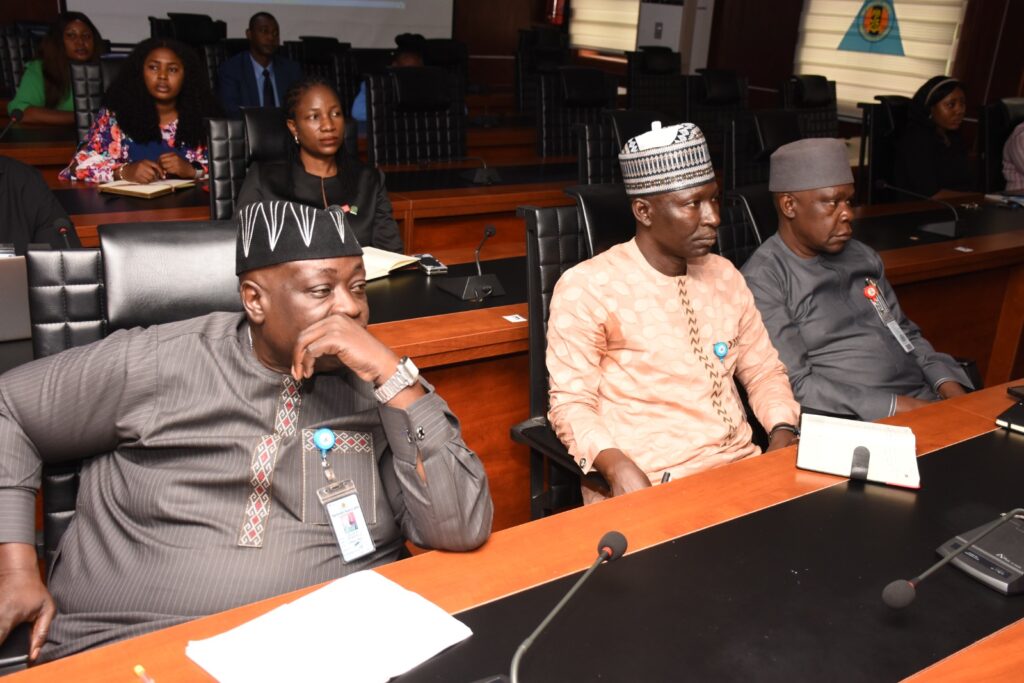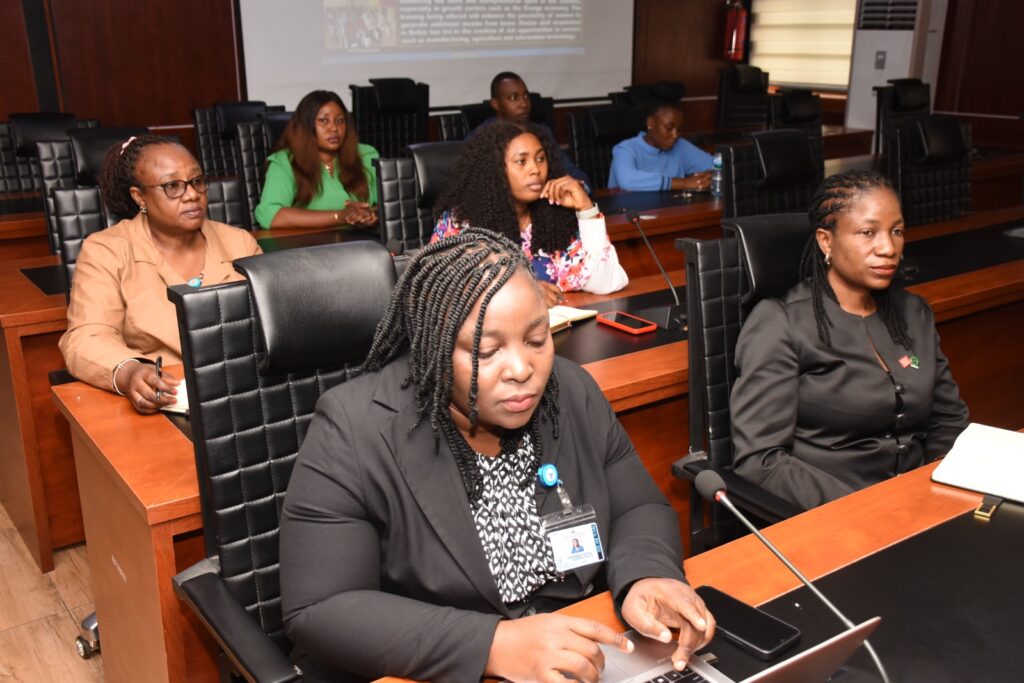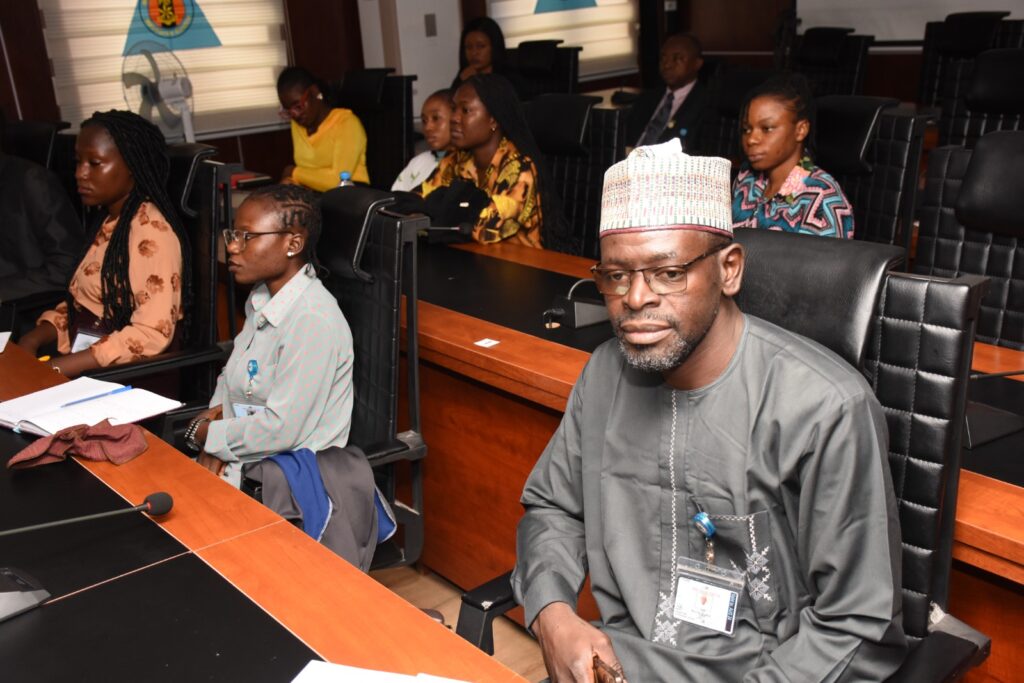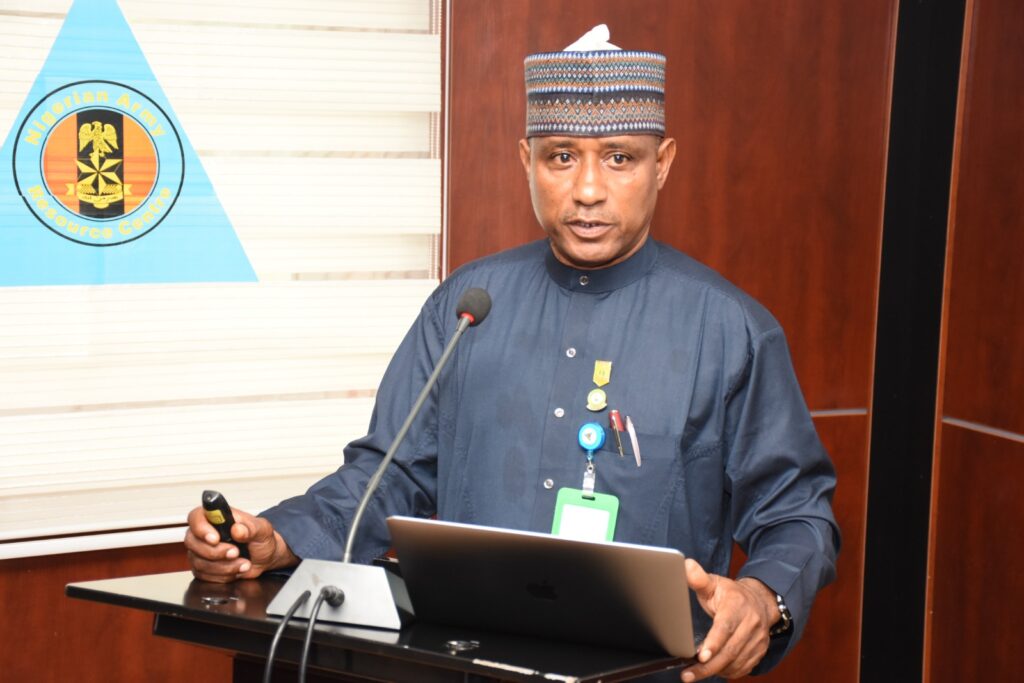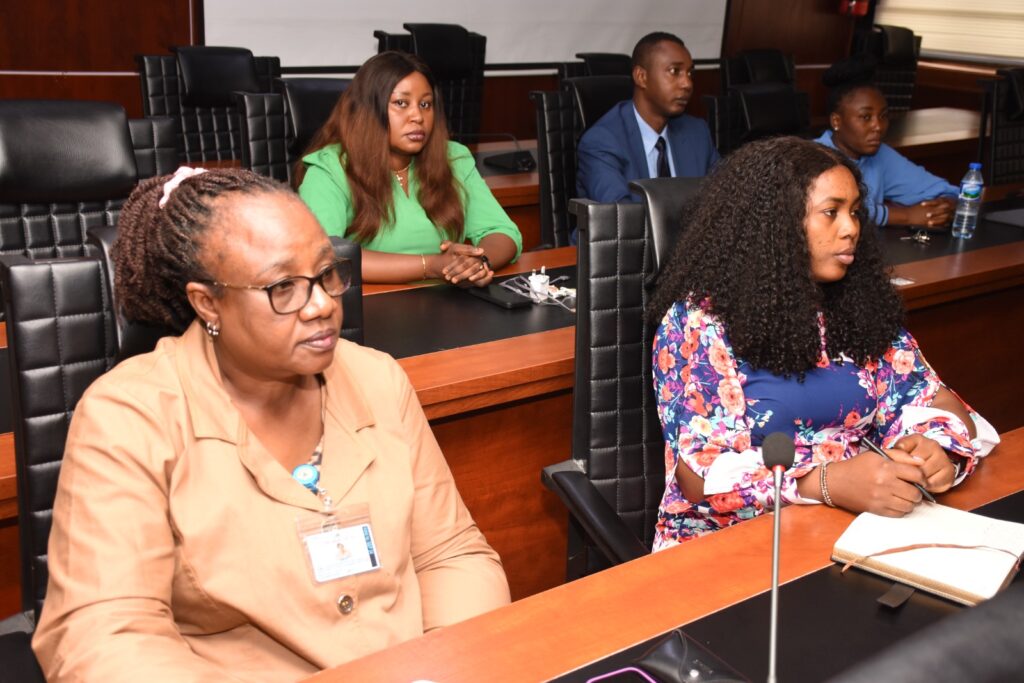The Monday 29 July, 2024 edition of the Nigerian Army Resource Centre (NARC) Weekly Subject Experts’ Presentation was held at Hall B, TY Buratai Block, Abuja. There were two presentations made by the Subject Experts on Central America and Indian Sub-Continent.
The first presentation by AVM SK Usman subject expert on Central America centered his presentation on how Belize’s Ministry of Investment and the Corozal Think Thank Launched two Projects in Corozal Town. On 11 July 2024, Belize’s Ministry of Investment, through its Investment Policy and Compliance Unit (IPCU), joined the Corozal Think Tank at the Corozal Institute for Technical and Vocational Education and Training (ITVET) for the launch of two laudable projects titled “Animation Bootcamp for Belizean Women and Girls” and “Cell Phone Repair Course for Women and Youth”. The Corozal Think Tank acts as the Steering Committee for the Regional Economic Development Masterplan for the Corozal District, which is aligned with the priorities of the Belize Medium-Term Development Strategy Plans. The group of professionals from the Corozal District are tasked with identifying and implementing projects and policy recommendations that will generate economic activity and prosperity for residents and for Belize.
The objective of the first project was aimed at providing opportunities for women in the Corozal, Orange Walk, and Belize Districts, to learn basic digital skills in graphic art and animations, to build capacity for participants to produce short, animated movies particularly for the filming, television, gaming, advertising and marketing industries. The second project was to enhance the skill of technicians in the upkeep, cleaning and overall maintenance and repair of cell phone devices. The Corozal Think Tank and the Ministry of Investment aimed to diversify export-led economic activity in the districts by enhancing the skills and entrepreneurial spirit of the citizens, especially in growth sectors such as the Orange economy. The training being offered will enhance the possibility of women to generate additional income from home. Similar skill acquisition in Belize has led to the creation of Job opportunities in sectors such as manufacturing, agriculture and information technology.
In his analysis and lessons for Nigeria, AVM SK Usman stressed out that, like in Belize, MSMEs play crucial role in Nigeria’s economic development, contributing significantly to job creation, economic growth and poverty alleviation. MSMEs are businesses with a limited number of employees and a relatively low turnover, which distinguishes them from larger corporations. Also, MSMEs have the overall objective of alleviating poverty, expanding gainful employment opportunities, wealth creation and sustainable economic growth and development. They are therefore the oil required to lubricate the engine of socio-economic transformation of any nation. Presently in Nigeria, there are over 40 million registered MSMEs existing. According to the National Bureau of Statistics (2024), MSMEs contributed approximately 48% of the Nigeria’s Gross Domestic Product (GDP), 50% of Industrial Jobs, nearly 90% of manufacturing and contribute over 75% in employment.
However, this sector faces challenges related to skill gaps, which hinder its growth potential, particularly for Vocational and Skill Acquisition Trainings (VSAT). Similar to Belize, VSAT in Nigeria has served as lubricant for SMEs, leading to creation of numerous job opportunities in sectors such as manufacturing, agriculture, and information technology (Adeyemi & Olusola, 2020). VSAT has also enabled many Nigerians to become entrepreneurs and self-sufficient, thereby creating job opportunities and empowering individuals economically. This entrepreneurial spirit has the potential of not only alleviating poverty but also stimulating the local economies. Numerous VSATs abound in Nigeria. One significant type of skill acquisition program is the vocational and technical education programs. The National Directorate of Employment (NDE) is a key agency responsible for these initiatives.
He recommended that, the federal Government of Nigerian should task SMEDAN to be the umbrella agency for coordinating and sustaining all VSAT programs across Nigeria, ensuring uniformity in training standards, monitor progress and provide support to various VSAT centers and also direct SMEDAN to strengthen its collaboration with Federal Ministry of Education (FME), Corporate Affairs Commission (CAC) and Federal Ministry of Humanitarian Affairs and Poverty Alleviation (FMHAPA).
Equally, the second presentation by Brig Gen WD Nasiru subject expert on Indian Sub-Continent focused his presentation on how Global Information Technology outage Disrupts Flight Operations, Banking, Media, and Businesses in India. On July 19, 2024, NDTV reported that a widespread IT outage, triggered by a faulty software update from Crowd Strike, caused significant disruptions across various sectors in India and globally. The incident affected airlines, banks, media outlets and healthcare services. The issue primarily affected systems running on Microsoft Windows, causing a domino effect of operational challenges. In India, the outage significantly impacted airlines and financial institutions. Major carriers such as Air India, Vistara, Indigo, SpiceJet, and Akasa Air reported technical issues that led to flight delays and cancellations. Passengers were left stranded at airports, creating chaos and frustration. Banks also faced substantial disruptions. The IT systems of several leading banks experienced downtime, affecting ATM operations and online banking services. This caused inconvenience to customers, leading to long queues at bank branches and ATMs. Crowd Strike acknowledged the issue, attributing it to a defect in a recent software update. The company quickly released patches to resolve the problem and emphasized that the outage was not due to a cyber-attack.
In his analysis and lessons for Nigeria Brig Gen WD Nasiru noted that, many organizations depend on Crowd Strike’s security software to protect their IT infrastructure. Therefore, when Crowd Strike experienced an outage, it disrupted the security protocols and operations of these organizations, leading to widespread system failures and operational interruptions across multiple sectors. This caused chaos at airports worldwide, including Nigeria’s Murtala Muhammed International Airport. There was delays and cancellations of flights from Lagos to the United States, Europe, and other international destinations. Punch Newspapers, reported that United Airlines canceled its Lagos-Washington flight on the same day (Friday), leaving its Nigerian passengers stranded.
According to Cirium Aviation Analytic, which is the largest aggregator of flight status information. About 2,691 out of 110,000 commercial flights scheduled last Friday were canceled globally. The disruptions extended beyond US carriers, it impacted European, Middle Eastern, and African airlines operating in Nigeria. Air France and KLM experienced significant delays, with flights into Nigeria postponed, while outbound flights also faced delays. The President of the Association of Foreign Airlines and Representatives in Nigeria, Dr. Kingsley Nwokeoma, issued a statement calling for understanding and patience from passengers. He emphasized the need for airlines to be proactive in dealing with the issue.
The global IT outage caused by Crowdstrike presents several key lessons, some of which are: The need for a robust incident response plan, regular training and drills for IT staff and clear communication channels for rapid decision-making during an incident (Crowdstrike, 2024). Necessity of investing in advanced cyber security technologies and infrastructure. Nigeria can benefit from establishing stronger partnerships with International Cyber security Organizations and fostering a culture of information sharing among local entities. This collaborative approach can help in the early detection of threats and in leveraging collective expertise to combat cyber incidents more effectively (ENISA, 2023).
He recommended that the FGN should invests in upgrading the national cyber security framework to ensure robust protection against cyber threats. This includes adopting advanced threat detection systems, enhancing incident response capabilities, and regularly updating security protocols and also, the FGN should launch a nationwide cyber security awareness campaign to educate citizens, businesses, and government employees about the importance of cyber security and best practices.







